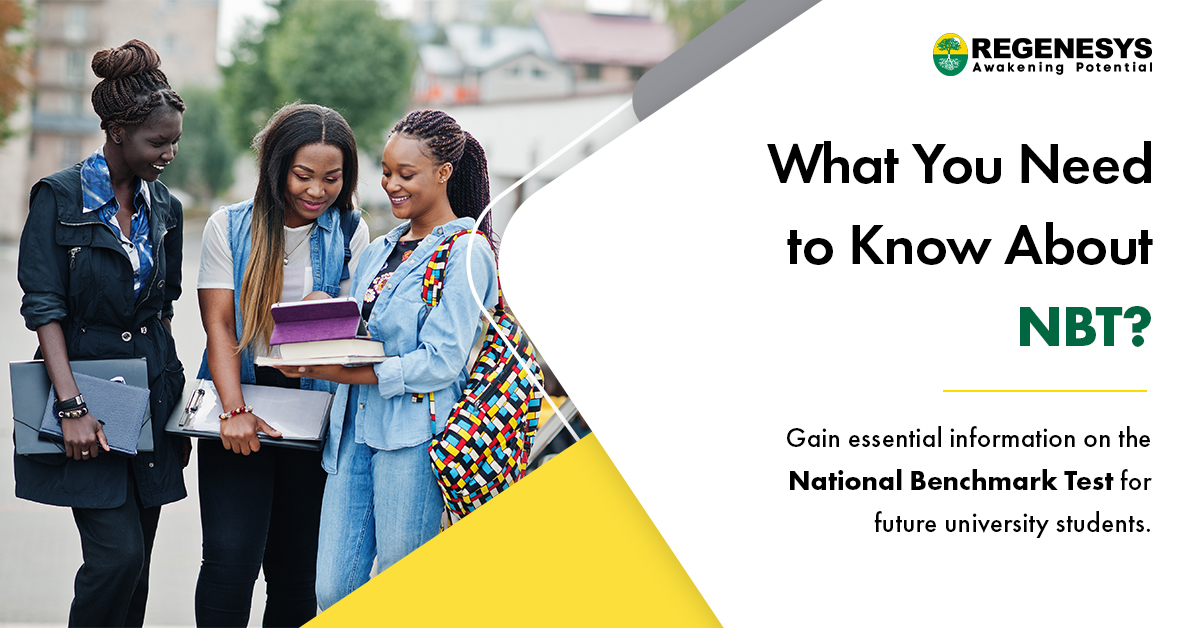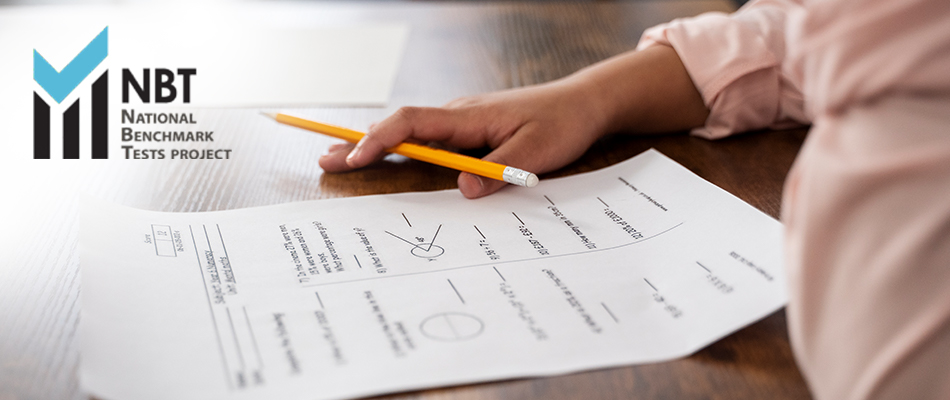The National Benchmark Test (NBT) is an important exam in South Africa. It was created to assess student’s readiness for university and help institutes better understand each student’s ability to handle university-level work. In other words, it evaluates a learner’s ability to use their existing knowledge to succeed in higher education.
Students need to know about NBT, as it can affect their chances of getting into university and highlight areas they need to improve.
In this article, we will explain everything you need to know about the NBT, including its components, purpose, and types. We will also cover how to register for NBT, how to prepare for it, and how universities calculate NBT scores to make decisions about your education.
Table of Contents
- What is the National Benchmark Test?
- Types of National Benchmark Tests
- What is the Purpose of the National Benchmark Test?
- Who Should Take the National Benchmark Test?
- Eligibility Requirements for the National Benchmark Test
- How to Prepare for the National Benchmark Test?
- How do you Register for the National Benchmark Test?
- How do Universities Calculate NBT Scores?
- Conclusion
- How to Ace the National Benchmark Test? FAQs
What is the National Benchmark Test?
The National Benchmark Test (NBT) is an assessment tool used in South Africa to determine whether students are ready for university-level education. It is a series of exams created by the NBT Project to assess a student’s academic literacy, general knowledge, and math skills and define their readiness for university.
Introduced in 2008 and managed by the Alternative Admissions Research Project at the University of Cape Town, NBT results are now used by many universities as an additional admission criterion. That means it offers a standard way for universities to compare academic skills from different educational backgrounds. The NBT is designed to complement and support the National Senior Certificate (NSC) results, not replace or duplicate them.
Types of National Benchmark Tests
There are two types of NBTs in South Africa. Students might need to take one of these NBTs depending on the requirements of the universities or colleges to which they are applying. It gives a detailed picture of a student’s readiness for university, helping schools make better admission decisions. The following are the two types of NBT:
1. Academic and Quantitative Literacy (AQL) Test:
The Academic and Quantitative Literacy (AQL) Test is a three-hour multiple-choice exam that evaluates students’ ability to read, write, and think critically in an academic setting. It also checks their basic math skills.
2. Mathematics Test (MAT):
The Mathematics Test (MAT) is a 3-hour multiple-choice exam that measures a student’s understanding of math, including algebra, geometry, and trigonometry.
What is the Purpose of the National Benchmark Test?
Though the ultimate purpose of NBT is to measure the readiness of students for university education, it offers valuable insights into various aspects of academic preparation and support. That means it is designed to serve several purposes. Here are the key 4 purposes of the national benchmark test:
- Assess Entry-Level Proficiency: The test evaluates students’ entry-level academic and quantitative literacy and math skills, providing a measure of their readiness for university studies.
- Support University Admissions and Placement: The NBT provides additional information to higher education institutions, helping them make informed decisions about student admissions and placement.
- Connect Skills with School Performance: NBT examines the relationship between students’ entry-level skills and school-level achievements to understand their academic preparation better.
- Improve Course and Curriculum Design:The results from the NBT help shape foundation courses and adapt curricula to meet students’ needs.

Who Should Take the National Benchmark Test?
The NBT is a key step for students wanting to attend university in South Africa. It checks if they are ready for the demands of higher education. That means the NBT is for students applying to undergraduate programmes at South African universities and who want to assess their academic readiness for university studies.
Precisely, the following individuals can take the NBT:
- Grade 12 learners
- First-time University applicants
Eligibility Requirements for the National Benchmark Test
If you are applying for the NBT, you must meet certain eligibility requirements. These requirements help ensure that the test accurately reflects your readiness for higher education. Let’s take a look at the eligibility requirements for the NBT:
- You should be in Grade 12 or equivalent, seeking entry into higher education institutions in South Africa.
- You must have an official South African ID. If you’re not a South African national, you must have a valid passport.
Along with these requirements, you must also meet the following requirements to book a test for the NBT:
- You must have a valid email address for communication.
- You must select the city and venue where you want to take the test.
- You must check the NBT requirements from the institutions where you plan to apply.
- You should choose a test date.
How to Prepare for the National Benchmark Test?
By getting ready for the NBT, you will not only understand the format better but also learn to use your time wisely during the exam. Moreover, this preparation will boost your overall performance, giving you the confidence to tackle the test successfully. Here are some ways you can implement to prepare for your NBT:
1. Check Your NBT Registration Details:
After you register for the NBT, confirm your test date and location on the NBT Project website. Typically, you will receive an SMS and email to confirm the venue two days before your test.
2. Learn About the NBT Format:
To get a good understanding of the NBT format, you can visit the National Benchmark Test Project website. There, you will find resources, including sample questions, that will give you an idea of what to expect.
3. Know the Test Duration:
Both the Academic and Quantitative Literacy (AQL) Test and the Mathematics Test (MAT) are 3 hours long. Since the tests are multiple-choice, manage your time well and read each question carefully.
How do you Register for the National Benchmark Test?
To apply for the NBT, you need to register online. You can follow the steps mentioned below to complete your registration:
- Step 1: Go to the official website of the National Benchmark Test Project
- Step 2: Click on ‘Book a test’ given under the ‘Quick Links’ tab
- Step 3: Read the requirements on NBT Registration to see what you will need to register
- Step 4: Enter your personal details
- Step 5: Fill in your contact information
- Step 6: Choose your test venue and date
- Step 7: Complete the survey
- Step 8: Download your statement
- Step 9: Pay for your test
How do Universities Calculate NBT Scores?
The NBT results are not based on a pass-or-fail system. Instead, they assess your readiness for academic work at a college or university. The NBT scores are categorised into three benchmark levels:
- Proficient: If your results place you in the proficient category, it indicates that you are well-prepared for the academic challenges at college or university.
- Intermediate: If you fall into the intermediate category, you may need to work a bit harder to manage your coursework.
- Basic: Being in the basic category suggests that you might be underprepared for university-level studies.
In the following table, you can see the minimum and maximum benchmark levels for applying for a degree and diploma or higher certificate:
If you are applying for a degree qualification:
|
DEGREE BENCHMARK |
Academic Literacy (AL) |
Quantitative Literacy (QL) |
Mathematics (MAT) |
|||
|
Minimum |
Maximum |
Minimum |
Maximum |
Minimum |
Maximum |
|
|
Proficient |
69 |
100 |
70 |
100 |
69 |
100 |
|
Intermediate |
35 |
68 |
40 |
69 |
37 |
68 |
|
Basic |
0 |
34 |
0 |
39 |
0 |
36 |
On the other hand, if you are applying for a diploma or higher certificate qualification:
|
DIPLOMA & HIGHER CERTIFICATE BENCHMARK |
Academic Literacy (AL) |
Quantitative Literacy (QL) |
Mathematics (MAT) |
|||
|
Minimum |
Maximum |
Minimum |
Maximum |
Minimum |
Maximum |
|
|
Proficient |
61 |
100 |
66 |
100 |
63 |
100 |
|
Intermediate |
33 |
60 |
34 |
65 |
33 |
62 |
|
Basic |
0 |
32 |
0 |
33 |
0 |
32 |
Conclusion
The National Benchmark Test (NBT) is a crucial assessment for students aspiring to enter higher education in South Africa. By evaluating academic literacy, quantitative skills, and mathematics, the NBT provides valuable insights into a student’s readiness for university-level studies. However, to succeed in this test, students need to understand the NBT format, prepare thoroughly, and know how to register and interpret their scores.
Hence, whether you are aiming for a degree or diploma, familiarising yourself with NBT can greatly improve your chances of academic success. With proper preparation and the right mindset, you can achieve your educational goals and start your university journey confidently.
Visit Reginsights by Regenesys for more insights into educational topics to support your academic journey. Explore our latest articles to stay informed and ahead in your educational pursuits.
How to Ace the National Benchmark Test? FAQs
What is the National Benchmark Test all about?
The National Benchmark Test definition encompasses its role in assessing academic literacy, quantitative skills, and mathematics to gauge how well students are prepared for the academic demands of higher education.
Why is the NBT important?
The NBT helps universities assess students’ readiness for university studies and provides additional information for admissions and placement decisions.
Who should take the NBT?
The NBT is intended for Grade 12 learners and first-time university applicants in South Africa who want to assess their readiness for university-level studies.
How can I prepare for the NBT?
Preparation includes understanding the test format, reviewing sample questions, and managing your time effectively during the exam.
What are the eligibility requirements for the NBT?
To be eligible for the NBT, you must be in Grade 12 or equivalent and seeking entry into higher education institutions in South Africa. You should also have an official South African ID or a valid passport if you are not a South African national.




